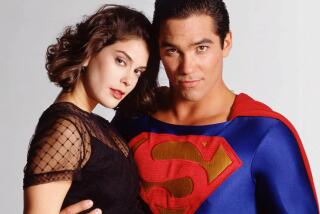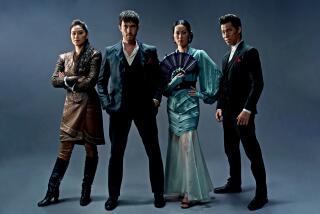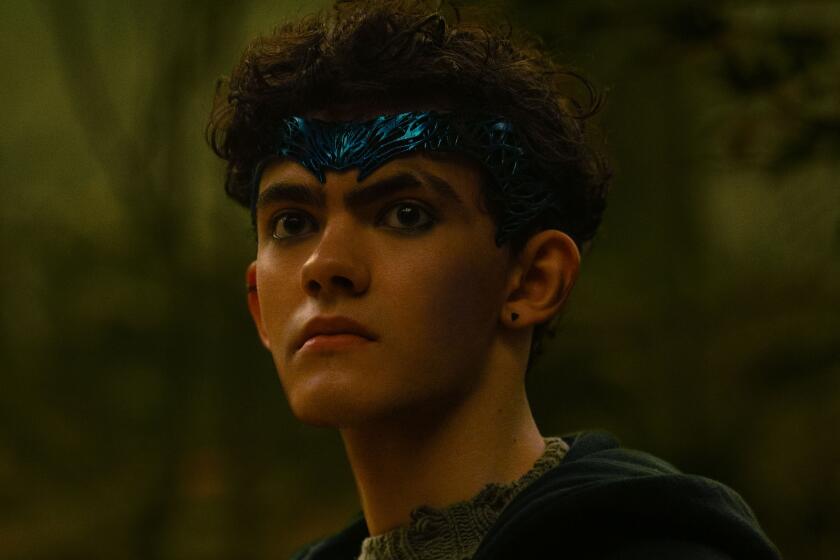Timeline: How ‘Zack Snyder’s Justice League’ happened
“Zack Snyder’s Justice League” has finally been released into the world.
Long a pop culture urban legend, fans have rallied around the so-called “Snyder cut” since the theatrical release of the original “Justice League” in 2017, which brought Batman, Superman, Wonder Woman, the Flash, Aquaman and Cyborg together for the first time in a live-action film.
But for Snyder’s hardcore fans, the movie they saw did not match their expectations of a Zack Snyder film.
Snyder, who was the credited director on the original “Justice League,” stepped away from the production prior to its release following a family tragedy. Warner Bros. tasked “The Avengers” director Joss Whedon with seeing the film through postproduction (as well as some reshoots), and the result was a critical and commercial flop. (And Whedon has subsequently come under fire from former collaborators for his behavior in the workplace, including “Justice League” costar Ray Fisher.)
Despite the lack of any credible evidence, fans maintained hope that a better — more Snyder-fied — version of “Justice League” existed somewhere and campaigned for years to get an official director’s cut released. Their dreams came true Thursday with the release of “Zack Snyder’s Justice League” on HBO Max.
Here is an overview of that years-long journey.
Batman, Superman, Wonder Woman and other DC Comics superstars mash it up — again — in this enervating four-hour director’s cut, releasing on HBO Max.
April 2014: Zack Snyder is officially announced as director of “Justice League”
Warner Bros. announces “Man of Steel” director Zack Snyder has been tapped to helm “Justice League,” a superhero team-up the studio had been planning for years. At the time, Snyder was about to head into production on “Batman v Superman: Dawn of Justice,” the follow-up to his 2013 Superman film and a cinematic re-introduction of Batman in the form of Ben Affleck. This move positions Snyder as a key architect in the studio’s DC superhero film franchise hopes.
March 25, 2016: “Batman v Superman: Dawn of Justice” released
The Snyder-helmed “Batman v Superman: Dawn of Justice” hits theaters. Former Times film critic Kenneth Turan praises the film and calls the director “a strong technician whose slam-bang emphatic, occasionally operatic style seems made for comic book adaptations,” but it’s just one of very few positive reviews. The film eventually grossed $873.6 million, which fell short of lofty standards set by the Marvel Cinematic Universe and was perceived as less than stellar when all costs and expectations were considered.
May 17, 2016: Jon Berg and Geoff Johns named “Justice League” producers
In the aftermath of “Batman v Superman,” Warner Bros. makes some changes in the way it approaches its DC superhero films. Jon Berg and Geoff Johns are tapped to run the company’s new division DC Films to oversee upcoming movies, including “Justice League.” There are also subsequent reports that the studio is looking to pivot its superhero franchise toward lighter fare after the disappointing reception of films such as “Batman v Superman” and “Suicide Squad.”
May 22, 2017: Zack Snyder announces he is stepping down from “Justice League”
Snyder announces he is stepping away from “Justice League” to be with his family after his daughter dies by suicide. It is also announced that Joss Whedon, fresh off a pair of successful Marvel team-ups (“The Avengers” and “Avengers: Age of Ultron”), will see the film through postproduction (and reshoots). At the time, it was reported that Snyder initially hired Whedon to help write additional scenes, but in more recent interviews he has said that wasn’t the case. He told Vanity Fair that Whedon was brought in by the studio before his departure for rewrites, and was then given more and more creative power on the film. Still, Snyder has reiterated that the decision to leave “Justice League” was “100%” his own, and that he left because at the time he had “zero energy” to fight the studio.
Nov. 17, 2017: “Justice League” released
“Justice League” opens in theaters as planned. Former Times film critic Kenneth Turan is one of the few who praise it as “a seriously satisfying superhero movie.” The film, which eventually grossed $657.9 million worldwide, is considered a critical and commercial dud.
Nov. 19, 2017: Fan campaign asking Warner Bros. to release Snyder’s cut begins
In a matter of days, fans who are disappointed in “Justice League” launch a campaign asking Warner Bros. to release Snyder’s director’s cut of the film, including an online petition from people who loved “Batman v Superman.”
Fans took to Twitter, Reddit, YouTube and beyond to spread their theories and scoured the internet for “evidence” that an unfinished but viable cut of Snyder’s original vision of “Justice League” existed somewhere. A website devoted to tracking all things “Snyder cut” is also launched some time later.
Reviews are out and many critics agree: “Zack Snyder’s Justice League” is a lengthy improvement on the original. But does that make it a good movie?
2018: Fans continue to campaign and the darker side of the fandom festers
As fans continue to mine for clues about the “Justice League” that-could-have-been online, some take the “Release the Snyder cut” campaign into the real world by organizing a rally outside of Warner Bros.’ Burbank offices.
Despite their enthusiasm, there is not much actual proof that a Snyder cut exists. Warner Bros. is also on the record denying its existence or any plans regarding its release.
This all plays into the narrative around the Snyder cut that allows some of the more toxic fans to perpetuate theories that positions the studio as an “enemy” that is denying them, the so-called “real” DC/Snyder fans, the footage they believes exists and deserve to see.
It is unfair to characterize an entire fandom by the actions of what might be the smallest yet loudest subset. But it has been routinely noted that some of these vocal “fans” target those they perceive as hurting their cause such as people affiliated with Warner Bros., journalists and film critics with online abuse.
2019: Snyder stokes the #ReleaseTheSnyderCut flames
The fan-led #ReleaseTheSnyderCut campaign continues into its second year and adds even more real-life components, such as crowdfunding billboards and skybanners timed to Comic-Con International in San Diego, as well as raising money to donate to the American Foundation for Suicide Prevention.
Snyder himself keeps fan hopes alive by continuing to share “Justice League”-related images on the social media site Vero. And Aquaman Jason Momoa even mentions having seen the Snyder cut.
Nov. 17, 2019: “Justice League” stars also demand #ReleaseTheSnyderCut
On the second anniversary of “Justice League’s” theatrical release, cast members Gal Gadot, Ben Affleck and Ray Fisher, as well as Snyder himself, take to social media to renew the call for the Snyder cut. This led to other high-profile enthusiasts joining in.
Snyder has recently discussed how this sustained social media push lead to Warner Bros. reaching out to see if there was anything they could work out.
May 20, 2020: Warner Bros. announces Snyder’s cut of “Justice League” will be released on HBO Max
In conjunction with Snyder’s virtual “Man of Steel” watch party, it is announced he will be completing his four-hour cut of “Justice League” for exclusive release on HBO Max. The following months bring official teasers and footage to the joy of the fans that have been campaigning for years.
July 1, 2020: Ray Fisher speaks out about Joss Whedon’s “abusive” on-set behavior
Ray Fisher, who played Cyborg in “Justice League,” says Whedon’s “on-set treatment of the cast and crew of Justice League was gross, abusive, unprofessional, and completely unacceptable” and also accuses Geoff Johns and Jon Berg of enabling this behavior. This leads WarnerMedia to conduct an investigation, which concluded in December with “remedial action” being taken. (Since then, a number of others have also accused Whedon of workplace misconduct and abuse. Whedon has not responded to the claims.)
2020: Snyder shoots additional “Justice League” scene
Much of the new material in “Zack Snyder’s Justice League” involves previously shot footage that has been completed with new visual effects. But he does reassemble his cast to shoot a new scene involving the Joker (Jared Leto) and a meeting of characters that he had long envisioned — though, reportedly, not everyone was present at the same time. Snyder recently told the New York Times that he had initially planned to shoot the scene at his own house, but was able to work it out and “do it for real.”
March 18, 2021: “Zack Snyder’s Justice League” released on HBO Max
The Snyder cut is officially released to WarnerMedia’s nascent streaming site and runs a whopping 242 minutes. In his review, Times film critic Justin Chang writes that if “forced to choose between the two, the Snyder cut is probably the one I respect more, which doesn’t mean it’s the one I prefer.” The mixed reviews almost all criticize the film’s length, but many critics say the Snyder cut is an improvement on the original 2017 theatrical release.
More to Read
Only good movies
Get the Indie Focus newsletter, Mark Olsen's weekly guide to the world of cinema.
You may occasionally receive promotional content from the Los Angeles Times.











